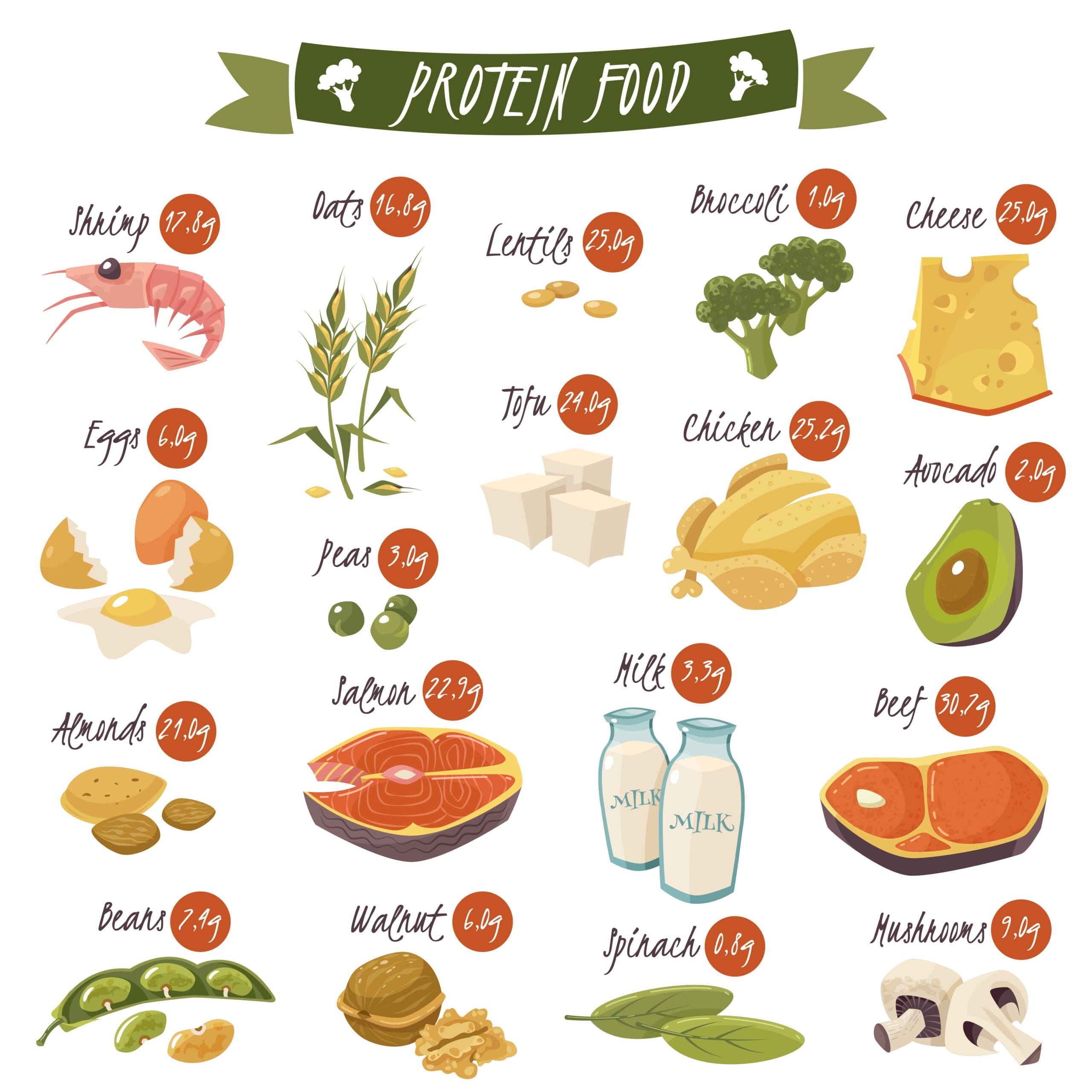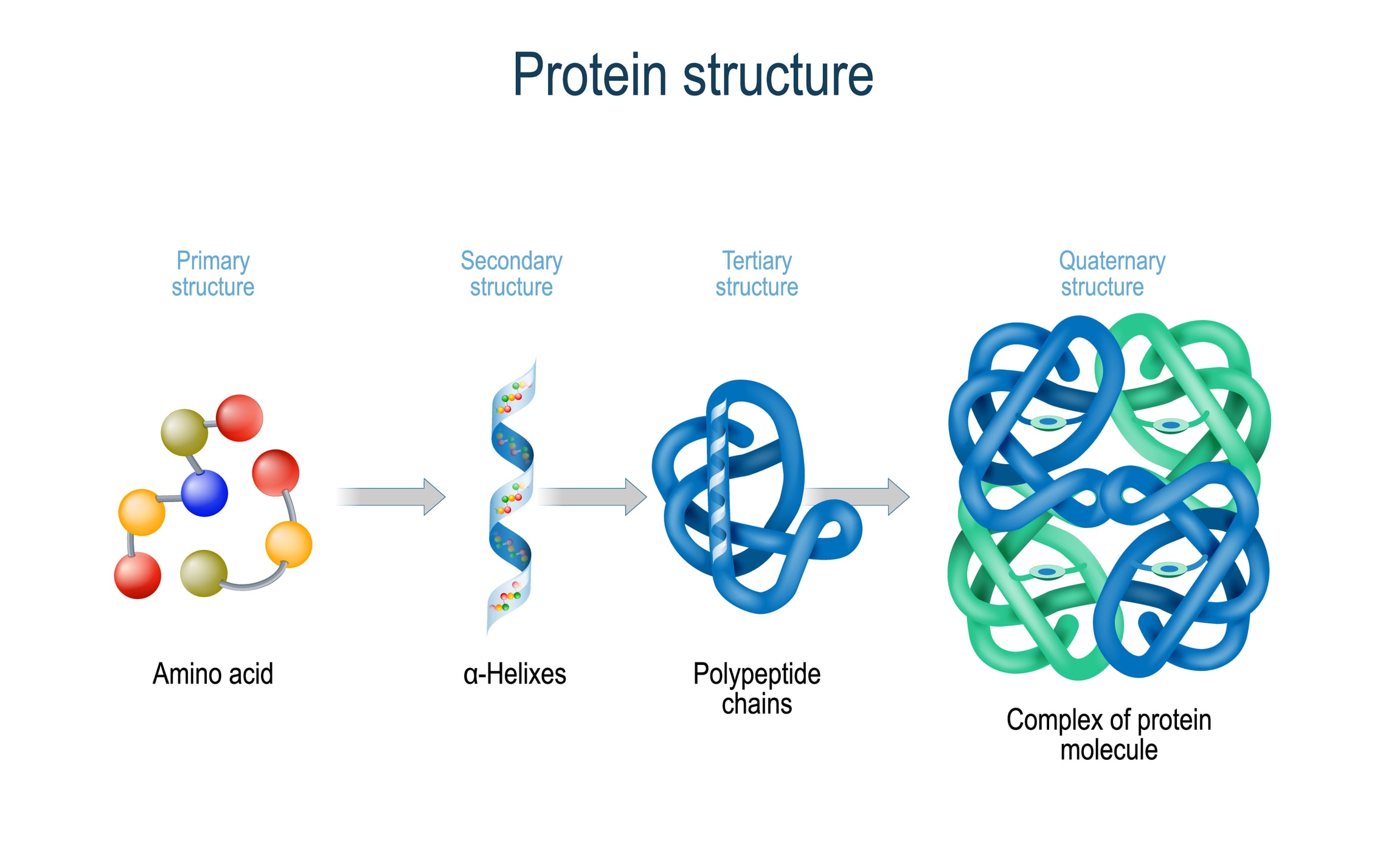High protein supplements and shakes dominate the bodybuilding, weight loss, and martial arts communities. However, many of these only succeed in stripping people of their money and giving false hope. At worst, they're incredibly detrimental to a person's health.
And you don’t build muscle consuming these products!
What is Protein?
Supplement companies rely on people who want to build muscle and focus on “protein,” a nebula word that's about as specific as saying “carbs.” There are hundreds of different types of proteins that build muscle, bone, tendon, organs, neurons, and every structure in our body. Muscle is only one of those structures and requires a specific set of proteins to make it happen. All protein is built from amino acids.

There are 22 amino acids, with eight of them being essential we obtain through our diet. The others we can make on our own. But take that with a little skepticism. Because not only are there 22 basic amino acids, there are different configurations of those amino acids that our body uses.
Many people have seen the configurations of various amino acids, such as l-lysine and l-tyrosine.
There is also a d-configuration. Our body needs all of them, so we need 44 different amino acids, although the d-configuration ones can be produced out of the l-configuration and only used in trace amounts.
Why Protein Supplements and Drinks are Bad for You
So now, we look at the different supplements and drinks you can get that are supposed to be high in protein.
The problem with these drinks as you don’t know which amino acids are in there unless you do the nutritional homework to discover what the original composition was. Then, you have to go through the manufacturing process to see how amino acids got preserved. Finally, you have to know precisely how long the supplement was sitting on the store shelf before you purchased it.
That’s a lot of work, which you probably aren’t doing.
Whey is a Common Form of Protein
This is the leftover fluid from the cheese industry. Here’s what happens to weigh between the time it comes out of the cow to make it into your supplements:
Other forms of proteins go through similar processes. Products like soy, pea, and vegetable proteins go through mashing, cooking, and pasteurization before being ground down and then dehydrated.
Now, protein needs to be in its active form to be used properly by the body. Once it becomes denatured, such as during the pasteurization process, the protein is practically useless.
And that doesn't even start to go into all the other problems with soy and its link to cancer, thyroid disruption, and overstimulating estrogen, which inhibits muscle formation.
What is an Appropriate Protein Intake?
Men who are looking to build muscle should take in between 120 and 140 grams of protein per day. This equates to 5 oz or just under one-third of a pound.
To put that matter into perspective, one serving of chicken contains approximately 50 grams of protein. Fish and beef also have about 50 grams of protein for every 4 oz serving. One egg contains 6 grams of protein. One serving of yogurt, approximately 4 oz, contains 12 grams of protein.

That means you’ll eat need less than one pound of meat, or about 12 oz, per day to get enough protein to build healthy muscle. If you had two eggs for breakfast, a serving of yogurt as a snack, 4 oz of chicken at lunch, and 4 oz of beef at dinner, you will have accomplished your goal of eating enough protein to build strong muscles.
The best thing about eating a variety of whole food ingredients is that you get all of the amino acids you need. Mixing eggs and beef gives you the full array of essential amino acids and semi-essential amino acids without your body having to convert anything extra. Variety also takes the pressure off the kidneys, studies showing this amount of protein and diversification do not impair kidney function.
Protein supplements don't do that for you.
What Happens When You Get Too Much Protein?
Once you go over this protein amount, health problems begin. Your body uses the protein you need and eliminates the excess protein you don't – it removes the toxic levels of protein. The organs most involved with this detoxification are the liver, kidneys, and adrenal organs.
One of the most common diseases fighters, athletes, and martial artists face is kidney dysfunctions. The combination of excess protein and dehydration creates such stress on the kidney that leads to kidney stones, kidney disease, kidney and bladder cancer, and kidney failure.

Source: Business Insider
In 2017, fighters Tony Murda Davis or Johny Hendricks were hospitalized with kidney failure.
Hendricks specifically stated, “That's what sucks more than anything, is that you work so hard to showcase what you have, and all of a sudden the diet that we were on backfires.
Which sucks, but I've learned after we did this [recovery from kidney failure], we did a lot of research, and I was eating a lot of deer meat and a lot of high-protein animal protein, which, that's the leading cause of kidney stones and your intestines failing you.
"I had no idea, because I usually eat a lot of fish and a lot of chicken. I wanted to eat more protein, a lot of cleaner protein, so we focused more on that and it ended up backfiring.”
Statistics show that bodybuilders, fighters, and martial artists who used protein supplements have significantly higher rates of kidney disease than the rest of the population.
This can be directly related to too much protein.
What Should You do?
Do yourself a favor and throw out those protein supplement bars, protein drinks, and anything that has added artificial protein. You're getting enough protein in your average diet if you eat meat regularly.
And, we’ll be dealing with vegetarians and alternative protein sources in a future article. In the meantime, read more about what protein does for the body under the Nutrition section.
